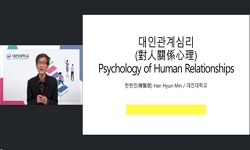Eisenstein dialecticizes a very general aspect of thought form (rational and irrational, conscious and subconscious, logical and pre-logical, reasoned and sensuous, etc) in montage process. Especially he assumed that the highest form of consciousness ...
http://chineseinput.net/에서 pinyin(병음)방식으로 중국어를 변환할 수 있습니다.
변환된 중국어를 복사하여 사용하시면 됩니다.
- 中文 을 입력하시려면 zhongwen을 입력하시고 space를누르시면됩니다.
- 北京 을 입력하시려면 beijing을 입력하시고 space를 누르시면 됩니다.
https://www.riss.kr/link?id=A99601350
- 저자
- 발행기관
- 학술지명
- 권호사항
-
발행연도
2012
-
작성언어
Korean
-
주제어
Eisenstein ; montage ; thought form ; affect ; pathos ; attraction montage ; ecstasy
-
등재정보
KCI등재
-
자료형태
학술저널
- 발행기관 URL
-
수록면
223-242(20쪽)
-
KCI 피인용횟수
4
- DOI식별코드
- 제공처
-
0
상세조회 -
0
다운로드
부가정보
다국어 초록 (Multilingual Abstract)
Eisenstein dialecticizes a very general aspect of thought form (rational and irrational, conscious and subconscious, logical and pre-logical, reasoned and sensuous, etc) in montage process. Especially he assumed that the highest form of consciousness in the work of art has as correlate the deepest form of subconscious, affective and emotional. Eisenstein continually reminds thus that intellectual cinema has correlate "sensory thought" or emotional intelligence, and is worthless without it.
In fact cinema and thought are encountered together through such a montage process, and are realized the relationship with a whole which can be thought in a higher awareness, the relationship with a thought which can be shaped in the subconscious unfolding of images, and the sensori-motor relationship between world and man, nature and thought.
목차 (Table of Contents)
- 1. 종합적 사유로서의 에이젠슈테인의 몽타주: 로고스에서 파토스로
- 2. 어트랙션에서 엑스터시까지
- 3. 결론
- 참고문헌
- Abstract
- 1. 종합적 사유로서의 에이젠슈테인의 몽타주: 로고스에서 파토스로
- 2. 어트랙션에서 엑스터시까지
- 3. 결론
- 참고문헌
- Abstract
참고문헌 (Reference)
1 Lev Vygotsky, "Théorie des émotions : étude historico-psychologique" L'Harmattan 1998
2 Jacques Aumont, "Théorie des cinéastes" Nathan 2002
3 David Bordwell, "The Cinéma of Eisenstein (1991)" New York & London 2005
4 Håkan Lövgren, "Serge Eisenstein's Gnostic Circle, In The Occult in Russian and Soviet Culture" Cornell University Press 1997
5 Sergeï M. Eisenstein, "S. M. Eisenstein Selected Works - vol. II: Towards a Theory of Montage" BFI 1991
6 André Bazin, "Qu'est-ce que le cinéma?" Cerf 1985
7 Jacques Aumont, "Montage Eisenstein"
8 Encyclopédie philosophique universelle, "Les Notions Philosophiques, tome II" PUF 1990
9 Sergeï M. Eisenstein, "Le filme, sa forme et son sens" Christian Bourgeois 1976
10 Sergeï M. Eisenstein, "La quatrième dimension du cinéma" Cahiers du cinéma 1976
1 Lev Vygotsky, "Théorie des émotions : étude historico-psychologique" L'Harmattan 1998
2 Jacques Aumont, "Théorie des cinéastes" Nathan 2002
3 David Bordwell, "The Cinéma of Eisenstein (1991)" New York & London 2005
4 Håkan Lövgren, "Serge Eisenstein's Gnostic Circle, In The Occult in Russian and Soviet Culture" Cornell University Press 1997
5 Sergeï M. Eisenstein, "S. M. Eisenstein Selected Works - vol. II: Towards a Theory of Montage" BFI 1991
6 André Bazin, "Qu'est-ce que le cinéma?" Cerf 1985
7 Jacques Aumont, "Montage Eisenstein"
8 Encyclopédie philosophique universelle, "Les Notions Philosophiques, tome II" PUF 1990
9 Sergeï M. Eisenstein, "Le filme, sa forme et son sens" Christian Bourgeois 1976
10 Sergeï M. Eisenstein, "La quatrième dimension du cinéma" Cahiers du cinéma 1976
11 Sergeï M. Eisenstein, "La non-indifférente nature I, II" UGE 1976
12 Lucien Lévy-Bruhl, "La mentalité primitive" Flammarion 2010
13 Jacques Aumont, "Dictionnaire théorique et critique du cinéma" Nathan 2005
14 Sergeï M. Eisenstein, "Cinématisme. Peinture et cinéma" Complexe 1980
15 Gilles Deleuze, "Cinéma 2 : L'image-temps" Minuit 1985
16 Gilles Deleuze, "Cinéma 1 : L'image-mouvement" Minuit 1983
동일학술지(권/호) 다른 논문
-
- 한국영화학회
- 김정선(Kim, Jeong Seon)
- 2012
- KCI등재
-
- 한국영화학회
- 박미선(Mi-Sun Park)
- 2012
- KCI등재
-
카자흐스탄 최초의 무성영화 <켈린>에 재현된 고대 튀르크 전통과 텡그리(Tengri) 신앙
- 한국영화학회
- 박영은(Park, Young Eun)
- 2012
- KCI등재
-
- 한국영화학회
- 서대정(Suh, Dae Jeong)
- 2012
- KCI등재
분석정보
인용정보 인용지수 설명보기
학술지 이력
| 연월일 | 이력구분 | 이력상세 | 등재구분 |
|---|---|---|---|
| 2026 | 평가예정 | 재인증평가 신청대상 (재인증) | |
| 2020-01-01 | 평가 | 등재학술지 유지 (재인증) |  |
| 2017-09-22 | 학회명변경 | 영문명 : Film Studies Association Of Korea (Fisak) -> Korean Cinema Association (KCA) |  |
| 2017-01-01 | 평가 | 등재학술지 유지 (계속평가) |  |
| 2013-01-01 | 평가 | 등재 1차 FAIL (등재유지) |  |
| 2010-01-01 | 평가 | 등재학술지 유지 (등재유지) |  |
| 2007-01-01 | 평가 | 등재학술지 선정 (등재후보2차) |  |
| 2006-04-09 | 학술지등록 | 한글명 : 영화연구외국어명 : Film Studies |  |
| 2006-01-01 | 평가 | 등재후보 1차 PASS (등재후보1차) |  |
| 2004-01-01 | 평가 | 등재후보학술지 선정 (신규평가) |  |
학술지 인용정보
| 기준연도 | WOS-KCI 통합IF(2년) | KCIF(2년) | KCIF(3년) |
|---|---|---|---|
| 2016 | 0.58 | 0.58 | 0.59 |
| KCIF(4년) | KCIF(5년) | 중심성지수(3년) | 즉시성지수 |
| 0.58 | 0.55 | 1.055 | 0.29 |




 DBpia
DBpia




